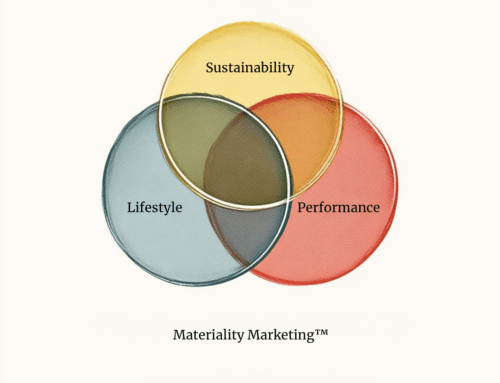12 Construction Industry Insights: How to Drive Sales in a Competitive Market
August 20, 2024

1. Laying the Foundation for Success
In the competitive landscape of the construction industry, success hinges on a strong foundation. It’s not just about bricks and mortar; it’s about laying the groundwork for lasting relationships and sustainable growth. Understanding market trends, customer needs, and your own unique value proposition is crucial.
To build a successful sales strategy in construction, start with a solid plan. Define your target market, assess your competitors, and establish clear goals. By having a well-thought-out roadmap, you can navigate the challenges of the market with confidence and purpose.
Moreover, investing in your team is essential. Equip your sales force with the knowledge, tools, and motivation they need to excel. Training programs, mentorship opportunities, and ongoing support can empower your team to drive sales effectively and adapt to the ever-evolving industry landscape.
2. Building Strong Relationships with Clients
In the construction industry, building strong relationships with clients is the cornerstone of success. Communication, trust, and reliability are key pillars that form the foundation of lasting partnerships. By actively listening to your clients’ needs and concerns, you can tailor your solutions to meet their expectations.
Going the extra mile can make a significant difference. Providing exceptional customer service, demonstrating transparency in your dealings, and delivering on promises contribute to building trust and loyalty. Happy clients are not just customers; they become your advocates in the industry.
3. Rising Above the Competition
In a competitive market, it’s crucial to differentiate yourself from the competition. Highlighting your unique value proposition, showcasing your expertise, and emphasizing your commitment to quality can set you apart in the eyes of potential clients.
Staying agile and adaptable is another key to rising above the competition. Keep an eye on market trends, embrace innovation, and be willing to pivot when necessary. By staying ahead of the curve, you can position your company as a leader in the industry.
Collaborating with industry partners and leveraging their expertise can also give you a competitive edge. By forming strategic alliances, you can offer comprehensive solutions that meet the diverse needs of clients. Remember, in a crowded market, collaboration can be the key to success.
4. Blueprint to Closing Deals Effectively
Closing deals in the construction industry requires a strategic approach. From understanding the client’s budget and timeline to negotiating terms and conditions, each step in the sales process plays a crucial role in closing the deal successfully.
Creating compelling proposals that clearly outline the scope of work, project timelines, and cost estimates can instill confidence in potential clients. Additionally, being proactive in addressing any concerns or objections can help move the deal forward smoothly.
Following up diligently and maintaining open communication throughout the project lifecycle is equally important. By keeping the client informed and engaged, you can build trust and pave the way for future collaborations and referrals.
5. Tools of the Trade: Tech Innovations in Construction Sales
In today’s digital age, technology plays a crucial role in streamlining construction sales processes. From customer relationship management (CRM) software to virtual reality (VR) project walkthroughs, embracing tech innovations can enhance client engagement and drive sales.
Utilizing drones for site surveys, implementing building information modeling (BIM) for project visualization, and leveraging data analytics for market insights are just a few examples of how technology is transforming the construction sales landscape. By integrating these tools effectively, you can stay ahead of the competition and deliver exceptional value to clients.
6. Navigating Marketing Strategies for Construction Companies
Marketing strategies play a crucial role in attracting and retaining clients in the construction industry. From digital marketing campaigns to networking events, having a multi-faceted approach can expand your reach and strengthen your brand presence.
Developing a strong online presence through a professional website, engaging social media content, and targeted email campaigns can help you connect with potential clients effectively. Additionally, participating in industry conferences, trade shows, and community events can facilitate meaningful interactions and lead generation.
Collaborating with influencers and industry experts can also amplify your brand’s visibility. By partnering with thought leaders and leveraging their expertise, you can enhance your credibility and attract high-quality leads. Remember, a well-rounded marketing strategy is key to sustained sales growth.
7. The Power of Data Analytics in Construction Sales
Data analytics is a game-changer in construction sales. By harnessing the power of data, you can gain valuable insights into market trends, client preferences, and sales performance. Leveraging data analytics tools and metrics can help you make informed decisions and optimize your sales strategies.
From tracking conversion rates and lead generation sources to analyzing customer feedback and project outcomes, data analytics provides a comprehensive view of your sales pipeline. By utilizing data-driven insights, you can identify opportunities for growth, address potential challenges, and maximize your sales potential.
8. Steering Through Economic Challenges in the Construction Industry
Navigating economic challenges is a reality for construction companies. From fluctuating material costs to labor shortages, staying resilient in the face of economic uncertainties is essential for long-term success.
Diversifying your revenue streams, managing costs effectively, and adapting to market dynamics can help mitigate the impact of economic challenges. Building strong relationships with suppliers, renegotiating contracts, and exploring new markets are strategies that can strengthen your business resilience.
Moreover, staying informed about economic trends, regulatory changes, and government initiatives is key to anticipating potential challenges and opportunities. By staying proactive and agile in your approach, you can navigate economic challenges effectively and sustain growth in the construction industry.
9. Safety First: Selling a Culture of Safety in Construction Projects
Safety is paramount in the construction industry. Promoting a culture of safety not only protects your workforce and clients but also enhances your brand reputation. Implementing stringent safety protocols, providing regular training, and prioritizing compliance with industry standards are essential components of a safety-first approach.
Communicating your commitment to safety to clients and stakeholders can instill confidence in your services. Highlighting your safety record, certifications, and proactive safety measures can differentiate you as a responsible and reliable partner in construction projects.
Remember, safety is not just a legal obligation; it’s a moral responsibility. By making safety a top priority in all your operations, you can create a safer work environment, reduce accidents, and build a positive reputation in the industry.
10. Green Trends: Embracing Sustainable Building Practices for Sales Success
Embracing green building practices is not just a trend; it’s a necessity in today’s construction industry. Sustainable building solutions not only benefit the environment but also drive sales by attracting eco-conscious clients and investors.
Incorporating energy-efficient designs, using recycled materials, and implementing green technologies can differentiate your projects in the market. Highlighting the environmental benefits, cost savings, and long-term value of sustainable practices can appeal to a growing segment of environmentally aware clients.
By staying ahead of green trends, investing in green certifications, and showcasing your commitment to sustainability, you can position your company as a leader in eco-friendly construction. Remember, sustainability is not just a buzzword; it’s a strategic advantage in today’s competitive market.
11. Mastering Negotiation Skills for Construction Sales Professionals
Negotiation skills are a fundamental tool in the arsenal of construction sales professionals. From pricing discussions to contract terms, mastering the art of negotiation can lead to mutually beneficial agreements and long-term client relationships.
Effective negotiation involves active listening, problem-solving, and finding common ground with clients. Understanding the client’s needs, exploring creative solutions, and maintaining professionalism are key aspects of successful negotiations.
Continuous learning and practice can help hone your negotiation skills over time. By seeking feedback, learning from experienced negotiators, and analyzing past deals, you can refine your approach and achieve better outcomes in construction sales negotiations.
12. Adapting to Change: Flexible Strategies for Construction Sales Growth
Adaptability is a must-have trait in the fast-paced world of construction sales. With market dynamics constantly evolving, agility and flexibility are essential for driving sales growth and staying ahead of the competition.
Being open to change, embracing new technologies, and exploring diverse market opportunities can help you adapt to shifting industry trends. By continually assessing your strategies, listening to feedback, and exploring innovative approaches, you can position your company for sustained growth.
Remember, the ability to pivot quickly, capitalize on emerging trends, and meet evolving client needs can set you apart as a dynamic and forward-thinking player in the construction sales arena. Stay adaptable, stay innovative, and watch your sales soar.





